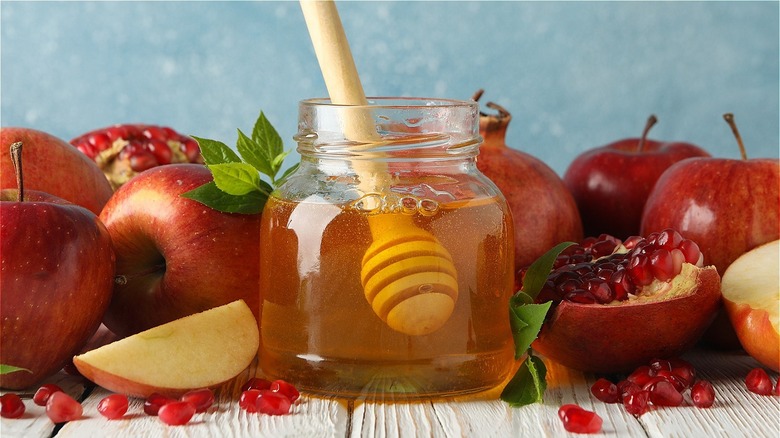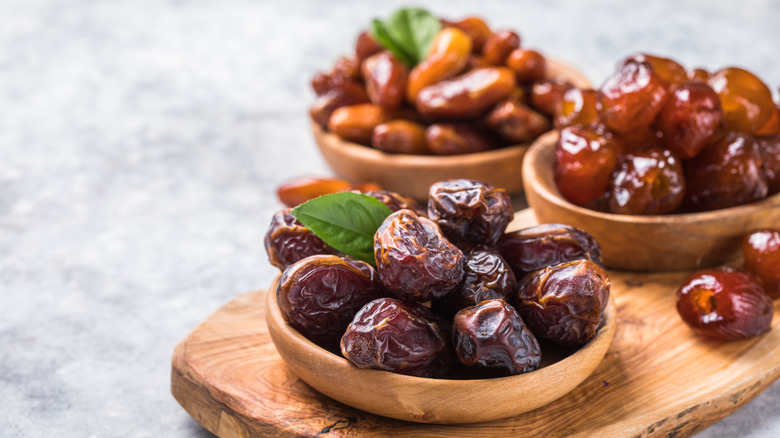The Fruit Traditions Behind Rosh Hashanah
All Jewish High Holy Days comprise their own respective traditions, but they all share one thing in common: food. From the hamantaschen of Purim to the Sufganiyah (jelly donuts) of Hanukkah to the tzimmes, matzo ball soup, and brisket of Passover, mealtime plays a hugely symbolic role in Jewish holidays and culture.
Rosh Hashanah (September 25-27), also known as the Jewish New Year, is the first of the Jewish High Holy Days on the Hebrew calendar, and therefore holds a special air of new beginnings. Celebrated on the first day of Tishrei, the holiday commemorates the beginning of the Days of Awe, which brings 10 days of "introspection and repentance" leading up to Yom Kippur, the holiest day on the Jewish calendar (via History). You might not see roast chickens and chocolate-covered matzo boards on Rosh Hashanah, but you will certainly see a bounty of fruit and other naturally sweet things. Here's how apples, pomegranates, dates, and honey play a role in Simanim, the foods of the Jewish New Year.
Sweetness for the year ahead
Plates of apples and honey will be the first thing you'll see at many Rosh Hashanah celebrations. "Jews have been dipping apples in honey for thousands of years to ensure a sweet, fruitful year ahead," Rachel Levin, author of the cookbook "Eat Something," tells Delish. "Shana tovah um'tukah, you say — good, sweet year — or shana tovah for short." Next to those apples, you might see a bowl of dates, whose ripeness symbolizes the end of one year giving way to a new one. The Hebrew word for date, tamar, also means "that our enemies be consumed," per Chabad.org.
The pomegranate has a place in several ancient fables, including that of Persephone, who ate several seeds from the tart red fruit and was thereby damned to spend "one third" of each year in the underworld with Hades (per the National Library of Medicine). On Rosh Hashanah, the pomegranate has a more positive connotation. According to Damien Stone, author of "Pomegranate: A Global History," each seed of the fruit represents a commandment from the Torah (via Food52). You might also see a fish head and a string bean at a Rosh Hashanah celebration, but that's a story for another time.

